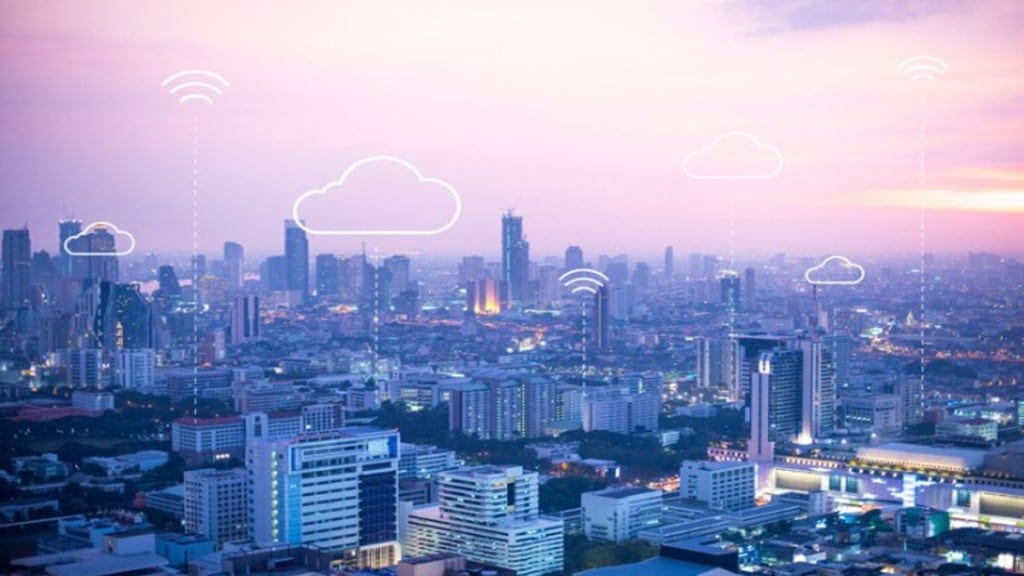The Telecom Regulatory Authority of India (Trai) on Friday proposed reduction in broadband connection rates charged by telcos and Internet service providers (ISPs) from public data offices (PDOs) under the Prime Minister Wi-Fi Access Network Interface (PM Wani) programme.
PDOs are local shops/ retailers, kiranawalas, storekeepers, etc that deploy public Wi-Fi hotspots and connect the last mile under the PM Wani programme.
The proposal by Trai, as part of the draft telecommunication tariff (70th Amendment) Order, 2024, aims at reviving the PM Wani programme. The programme was launched in 2020 to democratise content distribution and broadband access at affordable rates through public WiFi hotspots.
The project, however, did not take off as expected owing to the extremely high cost of connectivity through Internet leased lines charged by TSPs and ISPs from PDOs.
Simply put, telcos and ISPs have been charging up to Rs 8 lakh a year from PDOs and public data office aggregators (PDOAs) for supplying Internet-leased lines for bandwidth and other fibre resources needed to deploy public Wi-Fi hotspots, industry executives said.
The same when compared to broadband for personal use comes at rates starting at as low as Rs 300-400 a month. This, even as the public Wi-Fi hotspot project is crucial for Internet penetration.
A high bandwidth cost for PDOs does not make a viable business owing to higher costs and less revenue. Data sachets under PM Wani are being provided at Rs 5-10 per day.
“The Authority proposes that for the purpose of providing PM-WANI scheme, PDOs may be charged tariff rate at par with the tariffs for retail broadband (FTTH) connections, for the capacities for which the said retail tariff is being offered to subscribers by the service providers,” Trai said in the draft telecom tariff order.
“Based on the experience gained, the Authority may review the proposed arrangement for PM-Wani scheme, after a period of two years,” Trai added.
According to Trai, a comparison of 100 Mbps of Internet leased line tariff with 100 Mbps of FTTH broadband connection shows that the annual tariffs for Internet leased line are 40 to 80 times higher than a retail connection.
“PDOs, specifically the small scale PDOs viz small establishment, local shops/ retailers, chaiwalas, kiranawalas, storekeepers etc, generally having low revenue potential, neither need an ILL connection nor they can afford high backhaul rates which are applicable for large commercial entities,” Trai said.
The government data as on July 22 suggests that there are 207,642 deployed PM-Wani Wi-Fi hotspots in the country and 199 PDOAs and 111 app providers. The same is below the target set by National Digital Communications Policy, 2018 to enable deployment of 5 million public Wi-Fi hotspots by 2020 and 10 million by December 2025.
Further, for Digital India 2030 mobile and broadband policy objectives, the Bharat
6G Vision has set the goal of 50 million public WiFi hotspots by 2030.
Infact, the average daily data usage per Wi-Fi hotspot was of the order of 1 GB, till last year, and now it has come down to a few MBs, which is quite less than the monthly average data limit being provided to retail broadband customers, Trai said, adding that to pace up PM Wani project it is essential to rationalise the costs.
In November 2022, DoT in its communication to Trai, stated that the proliferation of PM Wani is quite limited and much below the targets. DoT cited the high cost of backhaul Internet connectivity charged by TSPs and ISPs from PDOs, as one of the reasons for low penetration.
In October last year, FE had reported, citing sources that Trai was not convinced with the idea of intervening in business operations of ISPs and telcos on the grounds of tariff forbearance. Therefore, that led to a delay in its intervention, sources said.
Trai has sought comments from stakeholders on the draft tariff order by September 6.

